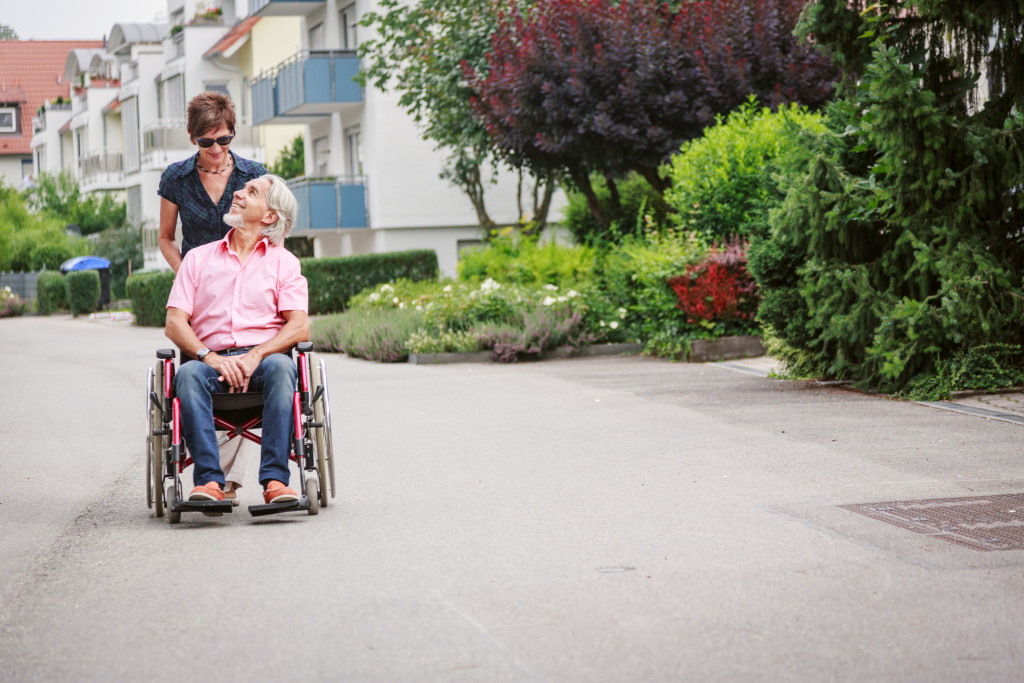Caring for a senior loved one on top of your other responsibilities can quickly drive your schedule down a chaotic spiral. However, keeping your elderly family members close for as long as possible is worth all the hard work, especially now that you have limited time.
But how can you take care of your senior loved one properly if you also have work and household responsibilities on your plate? Here are some strategies that can help you manage your time without sacrificing your health in the process:
1. Consider getting professional help
Unlike in palliative care or a hospice, seniors aging at home rely on their family members for their needs, family members who might have other things to take care of, such as work, school, chores, and other life responsibilities. If there is no one else at home to share the caregiving responsibilities with you, consider hiring a trained professional to go to your house when you are at work.
2. Find a senior daycare program
Similar to having a trained caregiver visit your home, a senior daycare program provides care for your elderly loved one while you are at work. The main difference is that your senior can interact with other members of the program, which gives them a chance to socialize and stave off feelings of loneliness.
3. Have other family members pitch in
If your children are old enough, give them small caregiving responsibilities such as serving their senior loved one’s food or fetching the newspaper for them. For teens or adults, ask them to help with more significant tasks, such as bathing, changing clothes, and giving medication. You can also ask close family members to stop by and help out with your senior loved one, whether occasionally or regularly.
When everyone pitches in, ensuring that all of your senior loved one’s needs are met will be easier. At the same time, it also gives you extra time to focus on other things.
4. Write down your schedule
Keeping up with a schedule is easier when it’s written down. Use a planner or a calendar to plan out things like doctor’s visits, grooming tasks, medication schedules, as well as entertainment. Doing this will help avoid mad dashes to the doctor’s office or last-minute rescheduling of work appointments. At the same time, keeping a schedule enables you to find free time to spend on yourself or with family, which is one of the best ways to maintain a healthy work-life balance.
5. Plan for emergencies
When you have a senior living at home, expect the worst-case scenarios, and make sure you are prepared for them. Here are several ways you can prepare for the most unexpected situations:
- Always keep a packed bag in case your senior loved one needs to go to the hospital
- Fill up prescriptions as soon as you can to avoid running out
- Stock up on plenty of easy-to-make food for whenever you don’t have time to cook
- Make sure everyone in the family knows what to do and who to call in case of an emergency
- Let your employer know about the situation at home so that they understand when you have to take time off unexpectedly
- Use your vacation time wisely; you might want to reserve some time off for emergencies
6. Don’t strive for perfection

When you are doing a thousand things at once, striving for perfection in every task that you do can quickly drive you crazy. Lower your standards and accept that everything shouldn’t be perfect, even if you feel that they are expected to be. Do just enough, and leave the rest as it is. You can always come back and improve whatever task it is when you have more time to spare.
So yes, sometimes the laundry will remain undone, and dinner will have to be takeout again. That doesn’t mean you are not doing your best. It means that you have done what you can, given the amount of time you have, and that’s okay.
7. Take care of yourself
To take care of others, you must not forget to take care of yourself. Prioritize ‘me’ time and learn when to take a step back when you are feeling overwhelmed. Whenever someone else can take the reins, take advantage of that opportunity to rest, spend some time with yourself, and engage in proper self-care.
Caring for your senior loved one at home is a huge responsibility, but you don’t have to do it alone. When you have to work and take care of the household on top of caring for your elderly loved one, use these strategies to manage your time better and make the most of your remaining days together.

